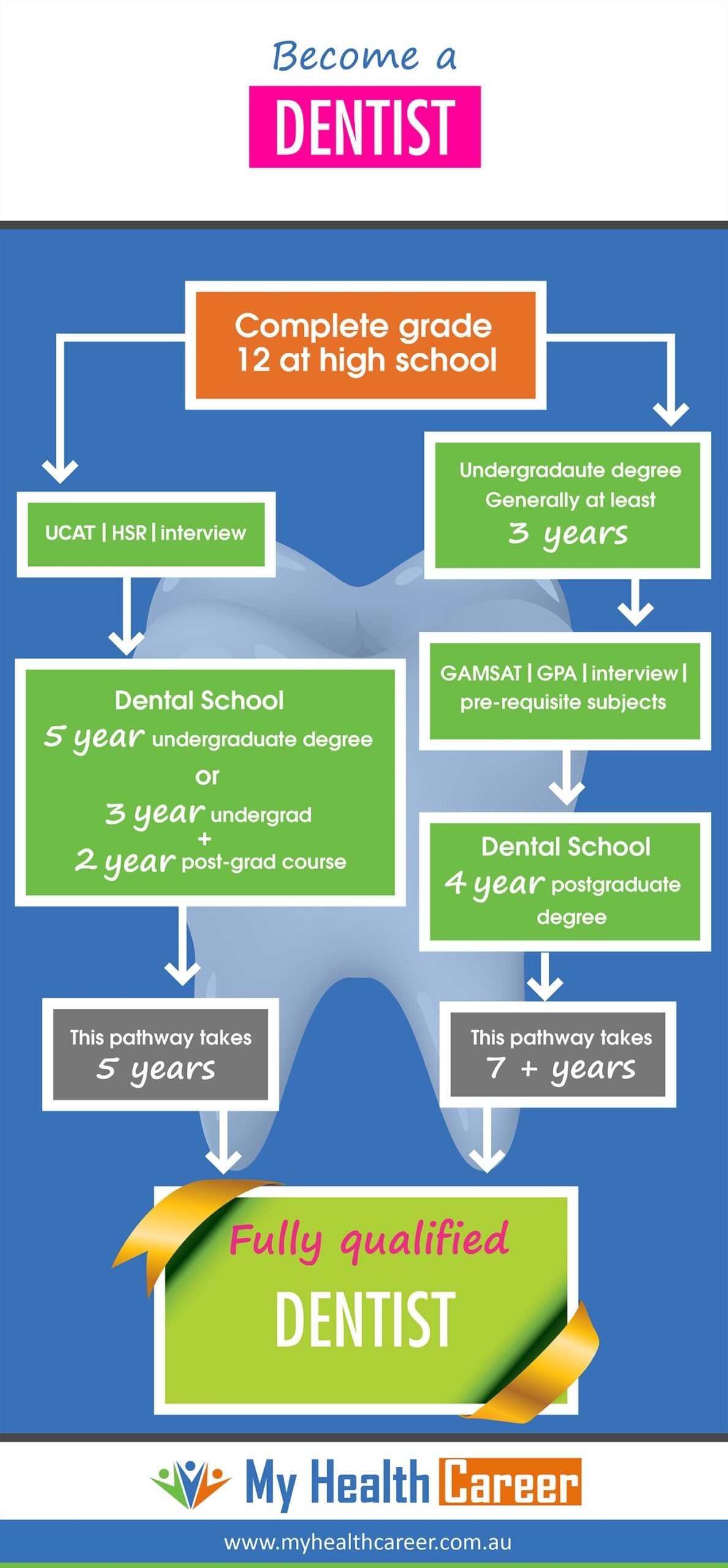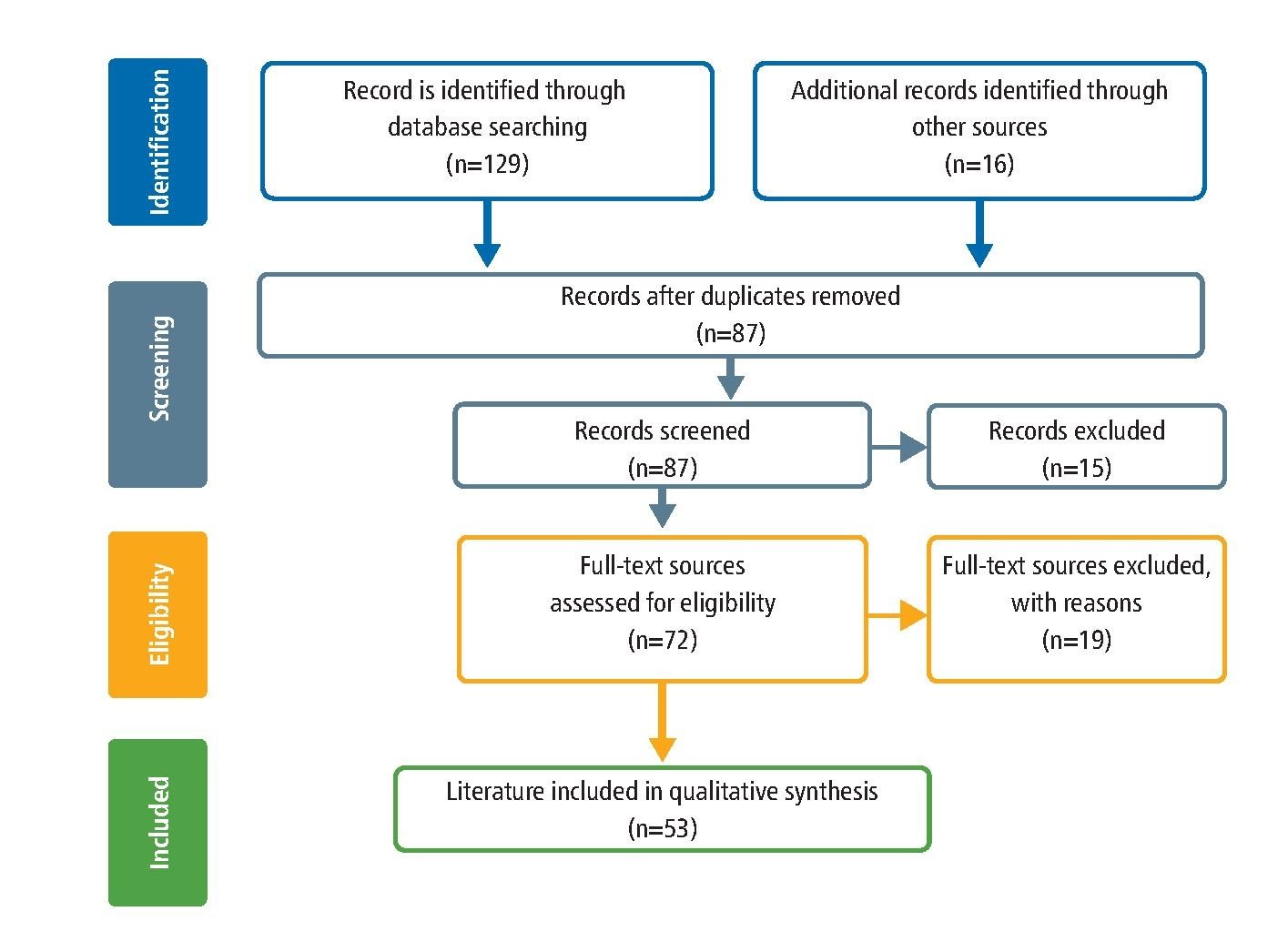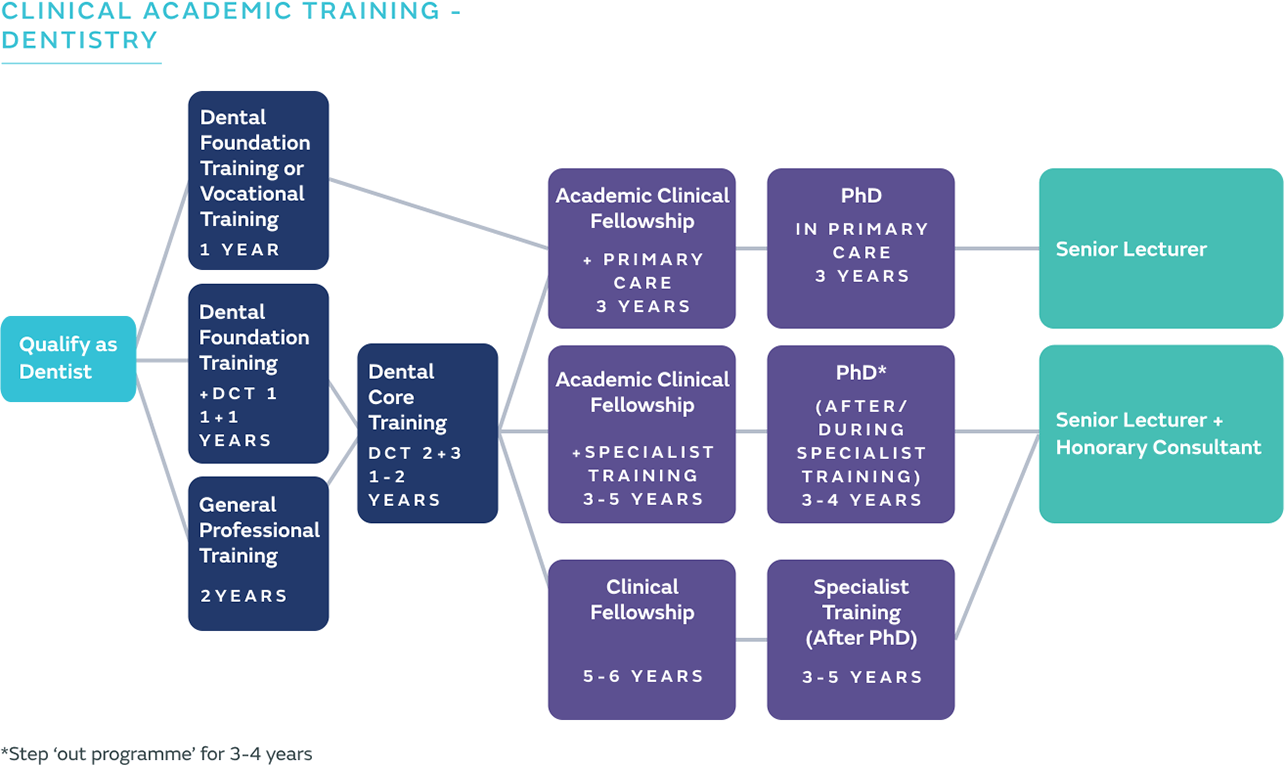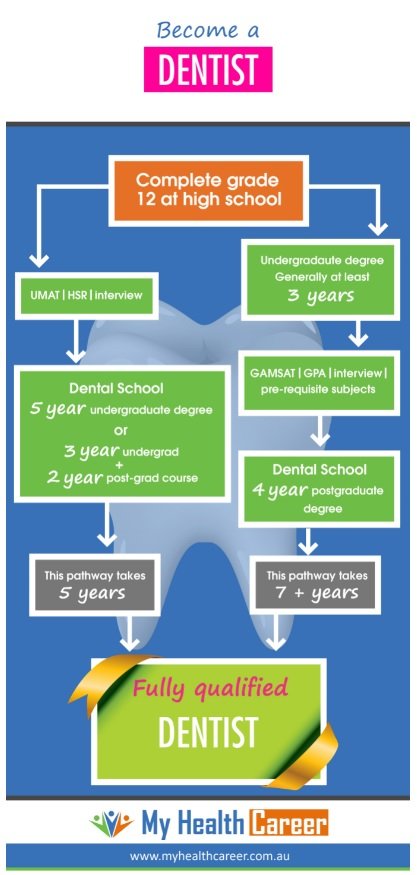Are you a student who dreams of pursuing a rewarding career in the United States? If so, you may want to consider exploring the dentist career path. Dentistry offers a unique blend of science, healthcare, and artistry, making it an intriguing choice for those interested in helping others maintain their oral health and perfect their smiles. In this article, we will provide an overview of the dentist career in the USA, giving you valuable insights into the educational requirements, job prospects, and the fulfillment that comes with this profession. Embark on this journey with us as we uncover the possibilities that await you in the world of dentistry!

This image is property of www.myhealthcareer.com.au.
1. Education and Training
1.1 Pre-requisites for Dental School
Before embarking on a career in dentistry, there are certain pre-requisites that must be fulfilled. These typically include a high school diploma or equivalent, completion of specific undergraduate courses, and the completion of the Dental Admission Test (DAT). It is important to research the specific requirements of each dental school as they may vary.
1.2 Undergraduate Education
To gain admission into dental school, a bachelor’s degree is typically required. While there is no specific major required, it is recommended to pursue a science-related field such as biology or chemistry. This helps build a strong foundation in the sciences and prepares students for the rigorous coursework of dental school.
1.3 Dental Admission Test (DAT)
The Dental Admission Test (DAT) is a standardized exam that assesses a student’s academic aptitude and proficiency in the sciences. It consists of four sections: natural sciences, perceptual ability, reading comprehension, and quantitative reasoning. A strong performance on the DAT is essential for gaining acceptance into dental school.
1.4 Dental School
Once accepted into dental school, students will undergo an intensive and comprehensive program that typically lasts four years. Dental school curriculum includes both didactic (classroom-based) and clinical training. Students will learn about various dental specialties, dental procedures, and patient care. In addition, there will be hands-on practice in dental laboratories and clinics, allowing students to develop their clinical skills.
1.5 Licensure Examination
After graduating from dental school, aspiring dentists must pass a licensure examination in order to practice dentistry. The most common exam is the National Board Dental Examination (NBDE), which is administered by the Joint Commission on National Dental Examinations. Once a dentist has obtained their license, they are legally able to practice dentistry and provide oral healthcare services to patients.
2. Dental Specialties
2.1 General Dentistry
General dentistry is the broadest field in dentistry, encompassing a wide range of services including oral examinations, teeth cleanings, fillings, and basic restorative procedures. General dentists are often the first point of contact for patients and play a crucial role in preventing and treating common dental problems.
2.2 Orthodontics
Orthodontics is a dental specialty focused on the correction of teeth and jaw alignment. Orthodontists use various techniques, such as braces and aligners, to straighten teeth and improve patients’ bite. By doing so, orthodontists help improve both the function and aesthetics of a patient’s smile.
2.3 Oral and Maxillofacial Surgery
Oral and Maxillofacial Surgery involves the diagnosis and surgical treatment of diseases, injuries, and defects of the oral and facial regions. Oral surgeons perform a wide range of procedures, including tooth extractions, jaw surgeries, dental implant placement, and treatment of facial trauma.
2.4 Periodontics
Periodontics focuses on the prevention, diagnosis, and treatment of diseases affecting the gums and supporting structures of the teeth. Periodontists provide non-surgical and surgical treatments for gum disease, as well as perform procedures such as gum grafts and dental implant placement.
2.5 Endodontics
Endodontics is the branch of dentistry that specializes in the diagnosis and treatment of diseases and injuries affecting the dental pulp and the tissues surrounding the roots of teeth. Endodontists perform root canal treatment and other procedures aimed at saving and preserving teeth.
2.6 Pediatric Dentistry
Also known as pedodontics, pediatric dentistry is dedicated to the oral health of children. Pediatric dentists provide comprehensive dental care for infants, children, and adolescents, including preventive care, restorative treatments, and dental education tailored to the unique needs of younger patients.
2.7 Prosthodontics
Prosthodontics involves the restoration and replacement of missing teeth. Prosthodontists are skilled in providing treatments such as dental crowns, bridges, dentures, and dental implant-supported restorations. They work closely with patients to help them achieve functional and aesthetically pleasing smiles.
2.8 Public Health Dentistry
Public health dentistry focuses on oral health education, disease prevention, and improving access to dental care for underserved populations. Public health dentists work in various settings, including community clinics, government agencies, and non-profit organizations, to promote oral health and implement public health strategies.
2.9 Dental Anesthesiology
Dental anesthesiology involves the administration of anesthesia to patients undergoing dental procedures. Dental anesthesiologists are specially trained to provide sedation and pain management techniques to ensure patient comfort and safety during dental treatments.

This image is property of media.springernature.com.
3. Key Skills and Traits
3.1 Manual Dexterity
As a dentist, you will need excellent manual dexterity and hand-eye coordination to perform delicate and precise procedures. Working in a small oral cavity requires the ability to manipulate dental instruments with precision and accuracy.
3.2 Interpersonal Skills
Interpersonal skills are essential in dentistry, as you will be working closely with patients of all ages and backgrounds. Building trust, communicating effectively, and empathizing with patients are crucial for providing quality dental care and creating a positive dental experience.
3.3 Attention to Detail
Dentistry requires a meticulous attention to detail. From diagnosing dental problems to performing treatments, every step must be carried out with precision and accuracy to ensure optimal results and patient satisfaction.
3.4 Problem-Solving Skills
Dentists are often faced with complex oral health issues and must be skilled problem solvers. They need to analyze symptoms, diagnose conditions, and develop customized treatment plans to address each patient’s unique dental needs.
3.5 Strong Scientific Background
A strong scientific background is necessary for dentistry, as it is a field based on evidence-based practices and advances in dental research. Understanding the biological, chemical, and physiological aspects of oral health is integral to providing comprehensive dental care.
3.6 Business and Management Skills
For those dentists planning to open their own practice or manage a dental clinic, business and management skills are crucial. These skills include financial management, marketing, and leadership abilities to ensure the success and sustainability of the dental practice.
4. Work Settings and Employment Opportunities
4.1 Private Practice
Private practice is a common work setting for dentists. Owning a dental practice allows dentists to have independence and control over their practice environment. However, setting up and managing a private practice requires additional business knowledge and responsibilities.
4.2 Public Health Clinics
Public health clinics provide dental services to underserved populations, such as low-income individuals or communities without access to regular dental care. Working in a public health clinic allows dentists to make a positive impact on the oral health of those who may not have access to private dental practices.
4.3 Dental Schools and Research Institutions
Dental schools and research institutions offer opportunities for dentists to pursue careers in academia and research. Teaching future dentists and conducting dental research contribute to advancements in the field and provide opportunities for professional growth and development.
4.4 Hospitals
Dentists may work in hospitals, especially in oral and maxillofacial surgery departments. They collaborate with other healthcare professionals to provide comprehensive care to patients with complex medical conditions or facial trauma.
4.5 Military Dentistry
Dentists can serve in the military as part of the dental corps. Military dentists provide dental care to active-duty personnel, veterans, and their dependents. This career path offers unique experiences and opportunities for professional development.
4.6 Corporate Dentistry
Corporate dentistry refers to dental practices that are part of larger dental service organizations (DSOs). Dentists working in corporate dentistry often benefit from shared resources, such as marketing and administrative support. This work setting may offer different career paths and opportunities for professional advancement.

This image is property of www.catch.ac.uk.
5. Typical Job Responsibilities
5.1 Diagnosis and Treatment Planning
Dentists are responsible for diagnosing dental conditions and formulating appropriate treatment plans. This involves conducting thorough oral examinations, analyzing X-rays and other diagnostic images, and recommending appropriate dental procedures or specialist referrals.
5.2 Dental Procedures and Treatments
Dentists perform a wide range of dental procedures and treatments, including cleanings, fillings, root canals, extractions, and crown or bridge placements. They may also offer cosmetic services such as teeth whitening or veneers to enhance patients’ smiles.
5.3 Patient Education and Counseling
Patient education and counseling are essential components of a dentist’s role. Dentists educate patients on proper oral hygiene practices, preventive measures, and the importance of regular dental check-ups. They also provide guidance on nutrition and lifestyle choices that impact oral health.
5.4 Dental Records and Documentation
Accurate record-keeping and documentation are vital aspects of dental practice. Dentists maintain comprehensive dental records, including medical histories, treatment plans, and progress notes. These records ensure continuity of care and support future treatment decisions.
5.5 Continuing Education
Dentistry is a constantly evolving field, and dentists must stay updated on the latest advancements and techniques. Continuing education allows dentists to enhance their knowledge and skills, ensuring they provide the highest quality of care to their patients.
6. Career Prospects and Job Outlook
6.1 Growing Demand for Dentists
The demand for dentists in the United States is expected to grow steadily in the coming years. Factors such as an aging population, increased awareness of oral health, and advances in dental technology contribute to the growing need for dental professionals.
6.2 Demographic Factors
Changing demographics in the United States, including population growth and increasing diversity, influence the demand for dental services. Dentists who are proficient in languages other than English may have an advantage in serving diverse patient populations.
6.3 Advancements in Technology
Technological advancements in dentistry have revolutionized treatment options and improved patient outcomes. Dentists who stay updated on the latest technologies and techniques can offer more efficient and effective dental care, providing a competitive edge in the job market.
6.4 Competition for Dental School Admission
Admission to dental school is highly competitive, with a limited number of spots available each year. Prospective dentists must maintain exceptional academic performance, strong DAT scores, and demonstrate a genuine passion for the profession to increase their chances of acceptance.
6.5 Opportunities for Specialization
Dentistry offers a wide range of specialty areas, providing dentists with opportunities to specialize and focus on specific areas of interest. Specializing in a particular field can enhance career prospects, increase earning potential, and allow dentists to provide specialized care to patients.

This image is property of www.myhealthcareer.com.au.
7. Work-Life Balance and Compensation
7.1 Flexibility of Work Schedule
Dentistry offers a certain level of flexibility when it comes to work schedules. While some dentists choose to work full-time in their practices, others opt for part-time or flexible working arrangements to maintain a better work-life balance.
7.2 Average Working Hours
The average working hours for dentists vary depending on the chosen work setting and personal preferences. Full-time dentists typically work around 36 to 40 hours per week, while part-time dentists have the option to work fewer hours each week.
7.3 Compensation and Salary
Dentistry is generally a well-compensated profession. The salary of a dentist varies based on factors such as experience, location, and specialization. According to the Bureau of Labor Statistics, the median annual wage for dentists in the United States is significantly above the national average.
7.4 Benefits and Job Security
Dentists often receive benefits such as health insurance, retirement plans, and paid time off. Job security is generally high in dentistry, as oral healthcare will always be in demand. However, it is important for dentists to stay updated on industry trends and adapt to changes to ensure long-term success.
8. Professional Organizations and Networking
8.1 American Dental Association (ADA)
The American Dental Association (ADA) is the largest professional organization for dentists in the United States. It provides resources, continuing education opportunities, and advocacy for the profession. Joining the ADA allows dentists to stay connected with the dental community and access valuable professional support.
8.2 Academy of General Dentistry (AGD)
The Academy of General Dentistry (AGD) is an organization that emphasizes lifelong learning and provides dentists with access to continuing education programs. Becoming a member of the AGD offers dentists the opportunity to expand their knowledge and skills beyond general dentistry.
8.3 Specialty Dental Organizations
There are various specialty dental organizations devoted to specific fields of dentistry. These organizations provide specialized resources, educational opportunities, and networking platforms for dentists practicing within those specific fields.
8.4 Local Dental Societies
Joining local dental societies is an excellent way for dentists to connect with peers in their community. These societies often host meetings, workshops, and social events that facilitate professional networking and collaboration among local dental professionals.

This image is property of explorehealthcareers.org.
9. Continuing Education and Career Development
9.1 Continuing Education Requirements
Continuing education is a vital component of career development in dentistry. Dentists are required to fulfill continuing education requirements to maintain their licensure and stay updated on advancements in the field. These requirements may vary depending on individual state licensing boards.
9.2 Dental Conferences and Workshops
Dental conferences and workshops offer valuable opportunities for dentists to expand their knowledge, learn new techniques, and network with other professionals. Attending these events allows dentists to stay abreast of the latest trends and advancements in dentistry.
9.3 Residency and Fellowship Programs
Residency and fellowship programs provide specialized training beyond dental school. These programs allow dentists to further enhance their skills and knowledge in specific areas of dentistry, such as oral and maxillofacial surgery or pediatric dentistry.
9.4 Research and Academia Opportunities
For dentists interested in research or academia, there are opportunities to pursue careers in dental schools or research institutions. Engaging in dental research and teaching future dentists is a rewarding path that contributes to the advancement of the field.
10. Conclusion
Choosing a career in dentistry offers rewarding opportunities to make a positive impact on people’s oral health and overall well-being. With a comprehensive education, necessary skills, and a passion for providing top-notch dental care, you can embark on a successful and fulfilling career as a dentist in the United States. Whether working in private practice, public health, academia, or another setting, dentistry offers a diverse range of career paths and opportunities for professional growth. Stay engaged, continue learning, and embrace new advancements to ensure a bright and prosperous future in dentistry.